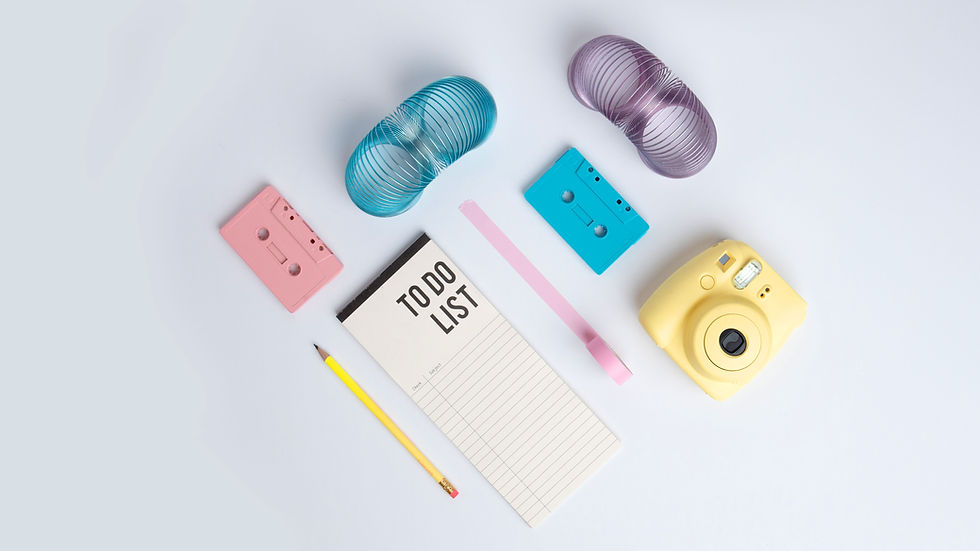How To Make Money In Music: 5 Key Revenue Streams For Artists To Know
- SiX EiGHT ONE
- Jul 12, 2024
- 4 min read
Updated: Jul 26, 2024

The music industry is one of many industries shrouded in mystery to the outsider. Everything from how songs are composed, to what record labels do. The most common illusion is that of fame equalling success and success leading to riches.
Fame, success and money, they don’t all go hand-in-hand, but whether you’re an established artist or a newbie trying to navigate the maze of the music industry, we want to give you some idea of the potential areas you could generate an income from and to elaborate on how to make money in music.
Here's a list of 5 key revenue streams for artists in the music industry to know:
#1 - Mechanical (Master) Rights
Music copyrights are essentially comprised of 2 parts – one being the original sound recording (known as master rights), the other being the composition of lyrics and music (publishing rights) which covers the melody and structure of a song.
Mechanical royalties (also referred to as Musical Works) are owed every time a copy of a musical composition is made – in pretty much all formats, meaning every time your song was re-produced for CD, Vinyl, Streaming or Download (to name a few), you should be earning royalty payments – even when someone reproduces and releases your material as a cover version.
If you’re a published writer, your publisher can track down and claim any royalties you’re owed, if you’re self-published, the most efficient way would be to register with one of the many collection societies that exist – in the UK, you can check out MCPS/PRS.
#2 - Performance Rights
Performance rights are part of copyright law and anytime your song is performed in public, you should be receiving a royalty payment – provided you are either the song composer and/or lyricist/songwriter.
"... anytime your song is performed in public, you should be receiving a royalty payment..."
Examples of a public performance in this case can include, radio airplay, TV broadcasts, live performances in venues like bars and clubs, and interactive digital streams and the royalty is divided into two parts: one part for the songwriter(s) and the other for the publisher(s).
#3 - Synchronisation Rights
Synchronisation rights refer to the right to use a piece of music as a soundtrack to visual images, essentially, it is the right to use music in timed relation with other visual elements in (for example) a film, video game, TV show, commercial, or any other visual production.
Sync rights have to be cleared with both the master (recording) rights holder(s) and the composition owners – even if the artist and songwriter are one in the same person.
#4 - Neighbouring Rights
These kind of rights are similar to public performance rights that are associated with compositions, however, they are associated with a recording and mean when a song is played in a different territory, royalties are owed to the master copyright holder and performing artist, rather than songwriters and publishers.
The term “neighbouring” refers to the fact that these rights are similar to (a neighbour to) the public performance rights for compositions.
#5 - Publishing Rights
Publishing copyright is split into two parts: the author/lyrics and the composer/music – it’s all about your songs, not your recordings.
As an emerging artist, there are three main ways you’ll generate income from your publishing rights which we’ve touched on previously, namely: Synchronisation Rights, Mechanical Royalties and Public Performance Royalties, there is also sheet music, lyrics on merchandise and more.
If you have a publishing deal, then the rights to your music (depending on the type of deal you have) will be with a publishing company who will then work to get that music out to a bigger audience, on the other hand, if you haven’t, then all the money generated should come to you.
Summary
If you’re reading this, maybe you’re just a curious outsider, but maybe (just maybe), you’re an aspiring artist working towards making music more than just a passion or hobby and make a steady income from what you do.
Although monetising your craft may seem complicated or high risk, with research, guidance and planning, we hope these initial 5 revenue streams have provided you with a starting point for how to make money in music and get paid adequately for your art and turn music into a full-time career.
SiX EiGHT ONE DISCLAIMER / NOTE
· Before committing to any deals, offers or proposals, take a few moments to ‘check-in’ with yourself and your gut instinct, never feel under pressure to make a decision on the spot.
· Always, get professional advice (legal, financial or industry specialist) before entering into any agreements.
· By reading this article, you agree that this is only for informational purposes and not to be considered as legal or professional guidance.
· We endeavour to ensure the information provided is accurate and helpful, however, we cannot be held liable for any actions you take as a result of the information provided or for any errors or omissions. Any recommendation or other information that is followed by the reader is at their own risk.
· Any links (hypertext link or other referral device) used are provided solely for the use and convenience of you and does not represent any endorsement, association or recommendation by us.
· In no event will we be liable to you or anyone else for any decision made or action taken in reliance on the information in this site.
· All information contained and provided is intended solely to provide guidance on matters of interest for the personal use of the reader.








Comments